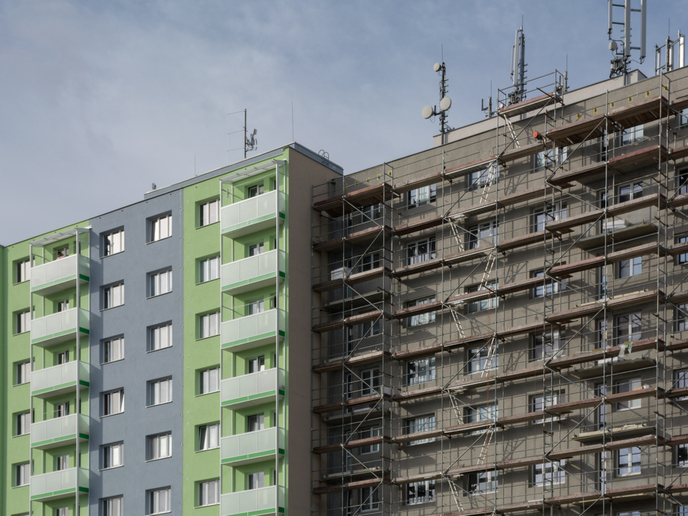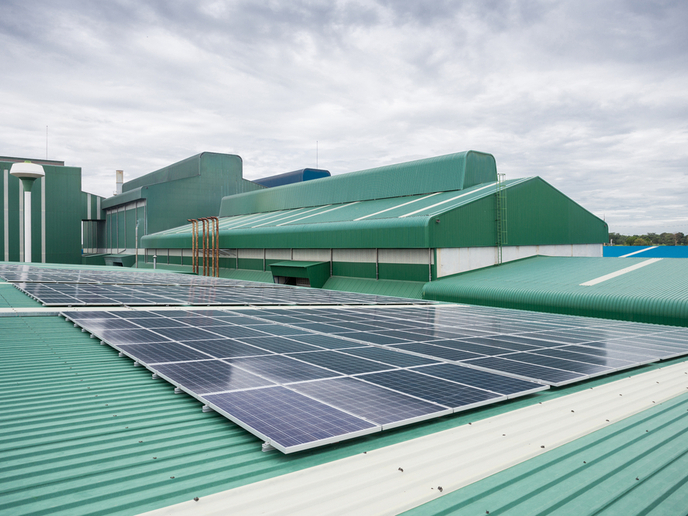Reducing the risk and capital associated with deep energy efficiency renovations
Although the energy consumption of the global building sector has remained steady, CO2 emissions have increased dramatically, accounting for 28 % of global energy-related emissions(opens in new window) in 2019. Enhancing the energy efficiency of buildings is imperative to bring this figure down. New building regulations are a tempting target, but around 85 % of Europe’s buildings(opens in new window) were constructed before 2001, and most of these will still be here in 2050. Renovation is critical to meeting sustainability goals. The EU-funded Accelerate SUNShINE(opens in new window) (Save your bUildiNg by SavINg Energy. Begin to move more quickly) project supported renovation efforts of small- and medium-sized municipalities.
Paying it forward
Standard renovations achieve 20-30 % energy savings, whereas deep renovation using state-of-the-art technologies can slash building energy consumption by more than 75 %(opens in new window). However, the required capital investments for this are large, and the payback period is long. Renovators need a way to pay for this deep renovation work today. Energy service companies (ESCOs) are well-positioned to play a pivotal role. These companies provide both energy services and financing for operations. Their energy performance contracting (EPC) with renovators guarantees energy savings and/or the same energy service at a lower cost. If ESCOs are short on cash, refinancing is achieved by selling future cash flows or receivables to banks in a forfaiting(opens in new window) transaction. In emerging EPC markets like Latvia, banks are hesitant to get on board. Accelerate SUNShINE’s EPC scheme gave ESCOs another option: refinancing ESCO contracts by ‘selling’ projected (guaranteed) energy savings to the Latvian Building Energy Efficiency Facility (LABEEF) established for this purpose. “LABEEF then takes over all further risks and liabilities of building owners,” explains Marika Rošā from Riga Technical University and project coordinator.
Identifying barriers
This not only minimises the capital investment and risks for customers. It ensures operation and maintenance of investments and decreased energy consumption for the entire contract duration (up to 20 years in some cases). Its standardised approach to contracts and procedures also ensures stakeholders have clear responsibilities and building renovation works are of higher quality. Accelerate SUNShINE ran into several obstacles related to the existing regulatory framework and a lack of consistency among municipalities that hindered planned shared project management and municipal partnerships. Despite facing challenges from political and economic barriers, Accelerate SUNShINE was able to precipitate EUR 20.1 million of energy-related investments for the renovation of more than 100 000 m2 of public and multifamily buildings. This secured energy savings of between 30 % and 60 %, and a total annual energy consumption reduction of 8.6 GWh. The project has made significant contributions to the understanding of how to finance energy efficiency investments in Latvia, beyond the predominant approach of using public grants. In addition, the forfaiting module of the SUNShINE platform has been created in such a way that it can be used by other countries, allowing for scaling up the scheme across Europe. “We have shown that addressing building renovation through innovative financing works in Latvia,” says Rošā. “The City of Riga has acknowledged our work and committed to including energy efficiency guarantees in future renovations and new construction.” Nonetheless, she adds that without mandatory inclusion of energy efficiency guarantees or EPC for the renovation of public infrastructure, a functional ESCO market will remain elusive.







